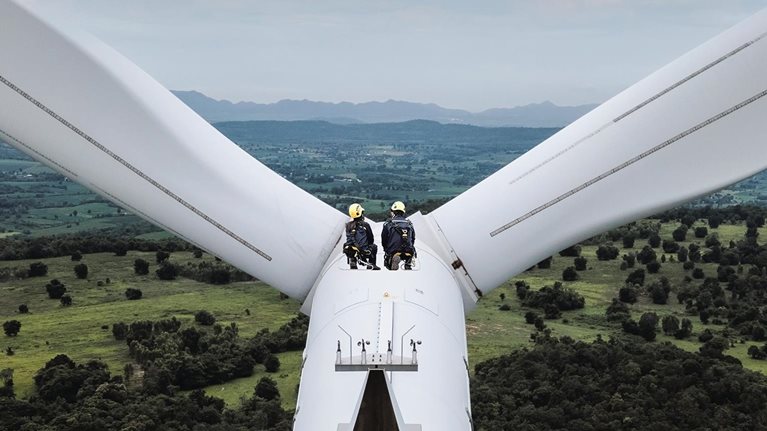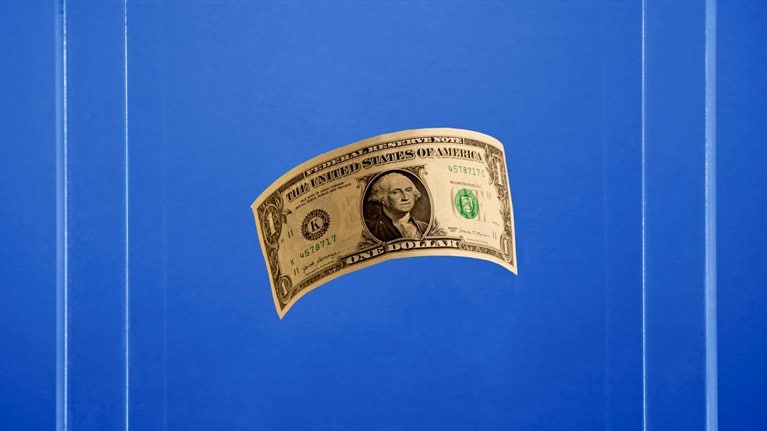When Juan C. Andrade took the helm of Everest, a global leader in reinsurance and insurance, in January 2020, he never could have fathomed how wildly different his experience would be from what he expected. “I was a COVID CEO,” he told McKinsey Senior Partner Kia Javanmardian during an interview at InsureTech Connect 2022.
In this transcript of that interview, Andrade and Javanmardian discuss how the global reinsurer has navigated the turbulence of the past few years. A crucial element, according to Andrade, is taking a proactive perspective on the risks facing the industry, particularly considering the dramatic and worsening effects of climate change on our planet and society. Another is fostering a strong sense of purpose and company culture that appeals to the next generation of top talent. The following transcript has been edited for clarity.
Kia Javanmardian: As the CEO of a major insurance company and reinsurance company, what do you think the industry needs to do to evolve to become more relevant when addressing emerging risks?
Juan C. Andrade: This is what insurance and reinsurance are supposed to be about, right? The risk environment that we’re in right now is exactly the key challenge that we’re supposed to face up to. And I think there’s an offense and a defense here. The defense part is about helping our customers mitigate risk. That becomes critical when we’re trying to understand climate change and cyberrisk, for example. The offensive part of it is identifying these emerging risks and then using new models, new technology, and artificial intelligence to get more comfortable pricing and underwriting that risk. That evolution has to happen in our industry.
Kia Javanmardian: And where would you say the industry is in figuring that out?
Juan C. Andrade: As underwriters, we tend to look at the world from the rearview mirror, very retroactively. We need to get out of that mindset and look instead at the risk landscape that we’re in today. Consider what we used to call a “black swan event.” There have been three of them in the past three years. So how do we anticipate that change? How do we anticipate the risk and evolve our ways of thinking to be able to better price, underwrite, and ultimately provide the capacity that’s needed?
Kia Javanmardian: Over the years, you and I have talked about what climate has been doing to our existing book, how we should think about managing the risks in our book given this systemic phenomenon, and the transition to decarbonization. If we think about the billions—if not trillions—of committed capital waiting to be deployed for solar, wind, new electricity grids, and so on, it’s vast. How do you think about that opportunity, and what do you think the role of the insurance industry is in enabling that?
Juan C. Andrade: We’re all grappling with this because climate change is real. What has happened in the last few years has been dramatic—we only have to look at 2020 to see that it was the second-warmest year on record.
All the models, all the data—it doesn’t look good. The perils are coming faster. They’re more violent. They’re more severe. So how do we adapt to provide capacity for customers who need it, particularly in coastal areas?
The decarbonization point is a critical one, too, because ultimately that is the path for the future. We have to try to stop the thermal shield that we’ve created around the planet. To me, again, enabling that effort means better models, better data, and then better pricing. We have to lean into it because otherwise we won’t be comfortable with underwriting that exposure. And if we’re not comfortable as an industry doing that, we won’t move as fast as possible. It’s critical that the industry plays a key role in all of this.
Kia Javanmardian: How should the industry adjust its thinking around data to be better equipped for the future? Or, to your point, do we just not have the history and the data—even though it’s right in front of us?
There has to be a strategy in the company that everybody can rally around. That purpose has to be more than just writing a policy or hitting a combined-ratio number.
Juan C. Andrade: I think we should be more presumptive and look at the world more prospectively, as opposed to looking at it from that rearview-mirror perspective. How do we get comfortable with that perspective? There are a lot of people here [at InsureTech Connect 2022] working on new models, new data, and new technology that enable us to get more comfortable. It goes back to the adage of art and science in underwriting: we can still use our gut feelings—we can still look at risk from a certain perspective—but for emerging perils, we need to get comfortable with the data that’s there. Not all data but new data, and the new ways of being able to look at it. And I think that’s critical.
Kia Javanmardian: One of the journeys we’ve all been on in the past few years during the pandemic is trying to keep people inspired—keeping a sense of culture, purpose, and belonging to something greater than ourselves in a virtual world. If I recall, you took the helm as CEO shortly before the pandemic. How have you navigated that and humbly thrived in that environment given your expansions to different parts of the world?
Juan C. Andrade: I’m a COVID CEO. I started in January of 2020, and then six weeks later, we were sending people home. But fundamentally, it has to be about purpose. There has to be a strategy in the company that everybody can rally around. That purpose has to be more than just writing a policy or hitting a combined-ratio number. It has to be about doing social good. And that’s so critical right now for our younger employees. They care deeply about this.
The other part of it is the environment that you create. You have to be inclusive, you have to be collegial, you have to be empathetic. Look at what we’ve been through in the past three years. The old-school management style just does not work in this environment. People need to know that you actually do care about them. People need to know that they’re coming into work to work for a greater good and a greater purpose. Establishing that culture is so critical. Then you have to communicate around it. You have to be relentless about how you communicate and how people fit into all of this. That’s the key for me.
Kia Javanmardian: What gets you excited as a CEO? When you weigh the pros and cons of the opportunity, the risks, the uncertainty—how do you internalize that and set a path for yourself and for your team?
Juan C. Andrade: For me, it starts with the incredible passion I have for this industry. I believe we do a noble thing. We help people, we help communities, we help businesses. For me, the opportunity is there. The world’s in chaos: war, pandemic, economic issues, and so on. But there’s opportunity that comes out of that. We just have to find it, figure out how to underwrite it, price it, and then go after it. To some extent, it’s about running toward the fire.
The other part is about looking at how the world economy is changing. Insurance is a percentage of GDP, and it’s not as strong as it used to be. Why? Well, developing markets are growing faster than developed economies. How do you crack the code in all of this? How do you fit into this equation? To me, that’s the opportunity.
Kia Javanmardian: One parting question for you, Juan. What advice would you have given yourself 15 years ago, considering everything you’ve experienced in the past decade?
Juan C. Andrade: Be intellectually curious. Ask lots of questions. Learn as much as you can possibly learn about the company and about the industry. Find a mentor who can help you along the way. There is ample opportunity in this industry for anybody—and it doesn’t have to come with an actuarial degree. You can start with anything. I started with a journalism degree. The opportunity, the challenge, the complexity are all there. If you like that, awesome. You picked the right industry.


